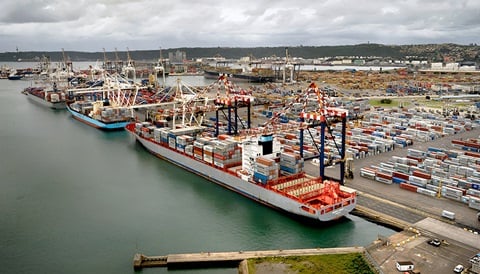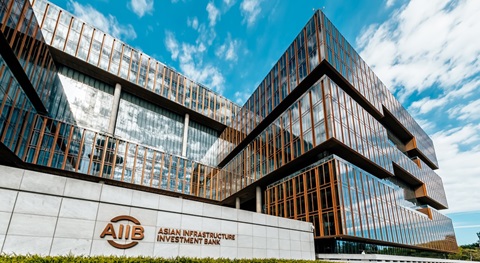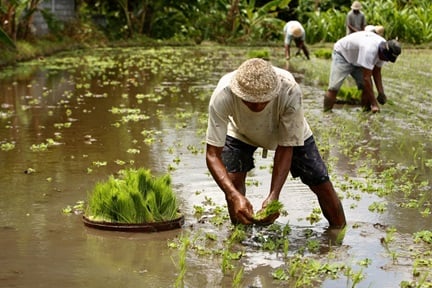Malaysian chocolate maker GCB sets up cocoa bean grinding unit in Côte d'Ivoire
Processing facility offers cost-efficiencies and improved control over production

In a strategic move to streamline its supply chain, Malaysian cocoa-derived food ingredients manufacturer, Guan Chong Berhad (GCB), recently inaugurated a cocoa bean grinding plant in San-Pédro, located in the southwestern region of Côte d’Ivoire. The factory allows the company to source cocoa beans directly from their origin, thereby making its operations more cost efficient.
The Johor-based GCB produces ingredients such as cocoa mass, cocoa butter, cocoa cake, cocoa powder, and assorted industrial chocolate products. Its best known retail chocolate brands are CacaoRich and Melko, which are also exported to Singapore. Spread across four continents, the company's production facilities can grind 337,000 metric tonnes of beans annually, produce 99,000 tonnes of value-added products, and churn out 95,000 tonnes of industrial chocolate. The Côte d'Ivoire factory, GCB’s first in Africa, aims to shorten the beans-to-ingredients cycle, bringing the supply chain closer to the source of bean production, enhancing quality control and reducing shipping schedules. The factory will allow GCB to shorten its supply chain to key markets like Germany and the UK.
With an initial output capacity of 60,000 tonnes, the plant represents an investment of about US$77m. GCB's roadmap for the facility includes ramping up production to 120,000 tonnes by 2024, with plans to further double that capacity to 240,000 tonnes over the next five years.
Côte d'Ivoire accounts for approximately 40% of global cocoa production. The nation's annual yield stands at 2.2m tonnes, of which only 35-40% undergoes domestic processing; the remainder is exported as raw beans. Key players in the country's cocoa processing sector include Singapore's Olam, with grinding operations in San-Pédro and Abidjan, alongside American food giant Cargill and Swiss chocolate maker Barry Callebaut.
With an objective to amplify domestic processing to a minimum of 50%, the government has introduced tax breaks and other incentives to bolster the industry's appeal. This initiative appears to be bearing fruit. The Ivorian Atlantic group is constructing a US$108m cocoa processing plant, initially set for a 64,000-tonne capacity, but with intentions to later boost this to 100,000 tonnes. The country also inked an agreement with the United Arab Emirates to set up another processing plant in San-Pédro, designed to grind 120,000 tonnes. Additionally, two factories, financed by Chinese entities, are slated to commence operations in October, each with a 50,000-tonne capacity.
Malaysia imports US$445m worth of cocoa beans from Côte d'Ivoire, making it the third-largest importer after the United States (US$723m) and the Netherlands (US$708m), and ahead of Turkey (US$212m) and Germany (US$209m). Over the past decade, the demand for cocoa from Asian producers has seen a marked rise. Asia ground 904,094 tonnes of cocoa beans in 2022 – much of it was imported from Cote D’Ivoire and Ghana.
References
‘Barry Callebaut expands its cocoa processing capacities in Côte d’Ivoire,’ Barry Callebaut, 29 March 2019
‘Cargill completes US$100M cocoa processing expansion in Côte d’Ivoire, meeting growing customer demand for dark brown cocoa powders’, Cargill, 02 November 2021
‘Côte d’Ivoire builds $100m factory in bid to process entire cocoa harvest’, Global Construction Review, 28 October 2022
‘Ivory Coast to boost cocoa grinding capacity with new plants’, Reuters, 27 January 2023
‘World’s biggest chocolate maker making strides in cocoa production that are good for farmers, forests’, The Straits Times, 19 June 2023
‘Malaysia’s GCB shakes up competition for Côte d’Ivoire cocoa’, The Africa Report, 04 August 2023
‘GCB Cocoa Côte d‘Ivoire’, GCB, Accessed 15 August 2023
‘Côte d‘Ivoire d’Ivoire’, Olam International Limited, Accessed 15 August 2023
'Cocoa beans in Côte d'Ivoire', OEC, Accessed 15 August 2023
‘Annual Report 2022’, GCB, 2023







